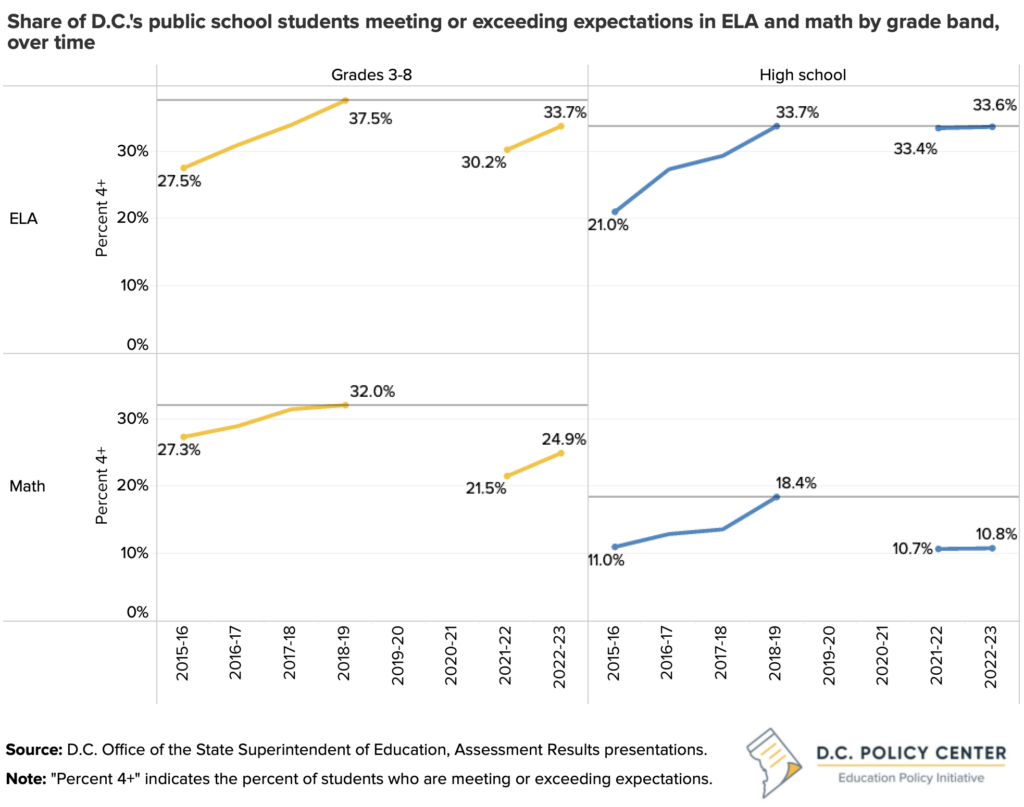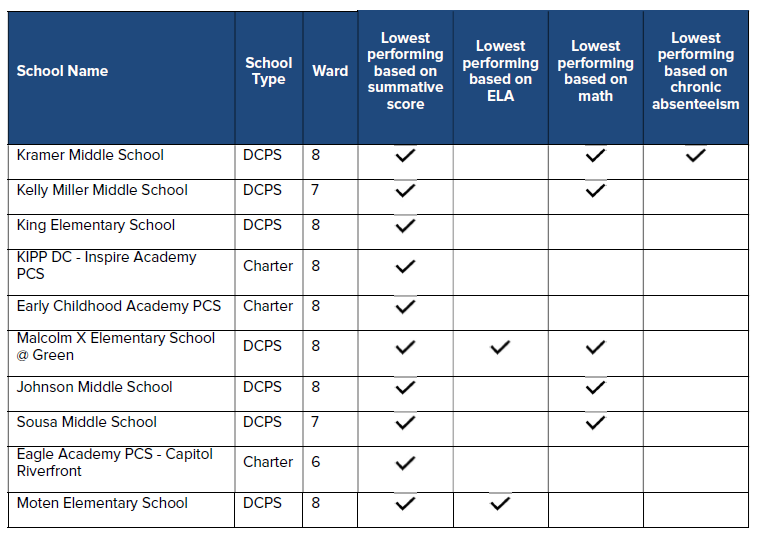

On Monday, November 20, 2023, Education Policy Initiative Director Chelsea Coffin testified before the D.C. Council Committee of the Whole, at its public hearing on Bill 25-540. Her testimony focuses on the need for clarification on identifying the lowest performing 5 percent of schools and the need for a strong link between school improvement and system goals. You can read her testimony below, or download a PDF copy.
The School Improvement Act of 2023 is especially important in the context of educational recovery from the pandemic. My testimony will focus on the need for clarification on how to identify the lowest 5 percent of schools and the need for a strong link between school improvement and system goals.


Improving academic outcomes at D.C.’s schools post pandemic is critical. Based on the results from D.C.’s second statewide assessment since the pandemic, recovery from disrupted learning is off to a good start, but achievement remains below or the same as pre-pandemic levels. Overall, both English Language Arts (ELA) and math proficiency have improved since school year 2021-22. ELA saw a 2.9 percentage point gain (33.7 percent of students meeting or exceeding expectations), and math saw a gain of 2.6 percentage points (21.8 percent of students meeting or exceeding expectations). Even with a relatively strong recovery for elementary and middle school students, at this rate, it would take 5 to 7 years to return to where D.C. could have been without the impact of the pandemic.1
The School Improvement Act of 2023 will provide targeted supports to the 5 percent of schools that are the lowest performing, but how these schools are identified matters and needs clarification. For example, based on the school score in the school year 2021-22 school report card framework, I identified 10 schools that would constitute the bottom 5 percent—all elementary and middle, and all located in Wards 7 and 8. However, only 2 out of these 10 schools are in the bottom 5 percent list if one were to consider English Language Arts (ELA) performance on PARCC, and only 5 out of 10 would be on the list based on performance in math. And looking at chronic absenteeism (or missing 10 percent or more of the school year), just 1 out of the 10 is identified as a school with the lowest performance in terms of chronic absenteeism.
Given this variation, the city should carefully consider what constitutes the greatest need for additional supports. ELA or math performance, or growth from year to year when available in coming years, could provide resources that are more targeted to under-performing schools in terms of academic outcomes. And I encourage chronic absenteeism to be part of the metrics tracked to measure improvement in academic outcomes. Chronic absenteeism jumped to 48 percent post-pandemic from 29 percent pre-pandemic2 and is a cause for concern, not just for student learning and wellbeing, but also resource efficiency as it undermines any investments made in schools. Students must be present to benefit from any interventions funded by this office.
Moving forward, D.C. will need to make choices about where to invest in a tougher fiscal environment especially with the end of ESSER funds after this school year. Targeted support based on academic outcomes is important, and it is important to understand why the proposed new office is better suited to provide these services or will be more successful than other initiatives such as high-impact tutoring, literacy training, whole child approach, among others.
Endnotes
- Coffin, C. 2023. “Chart of the week: New PARCC data show overall gain for DC students last year—but high school progress remained flat.” D.C. Policy Center. Retrieved from https://www.dcpolicycenter.org/publications/parcc-data-gains/
- Coffin, C. 2023. “What we’re hearing on attendance.” Presented to the Every Day Counts! Task Force. Retrieved from https://attendance.dc.gov/node/1681116

